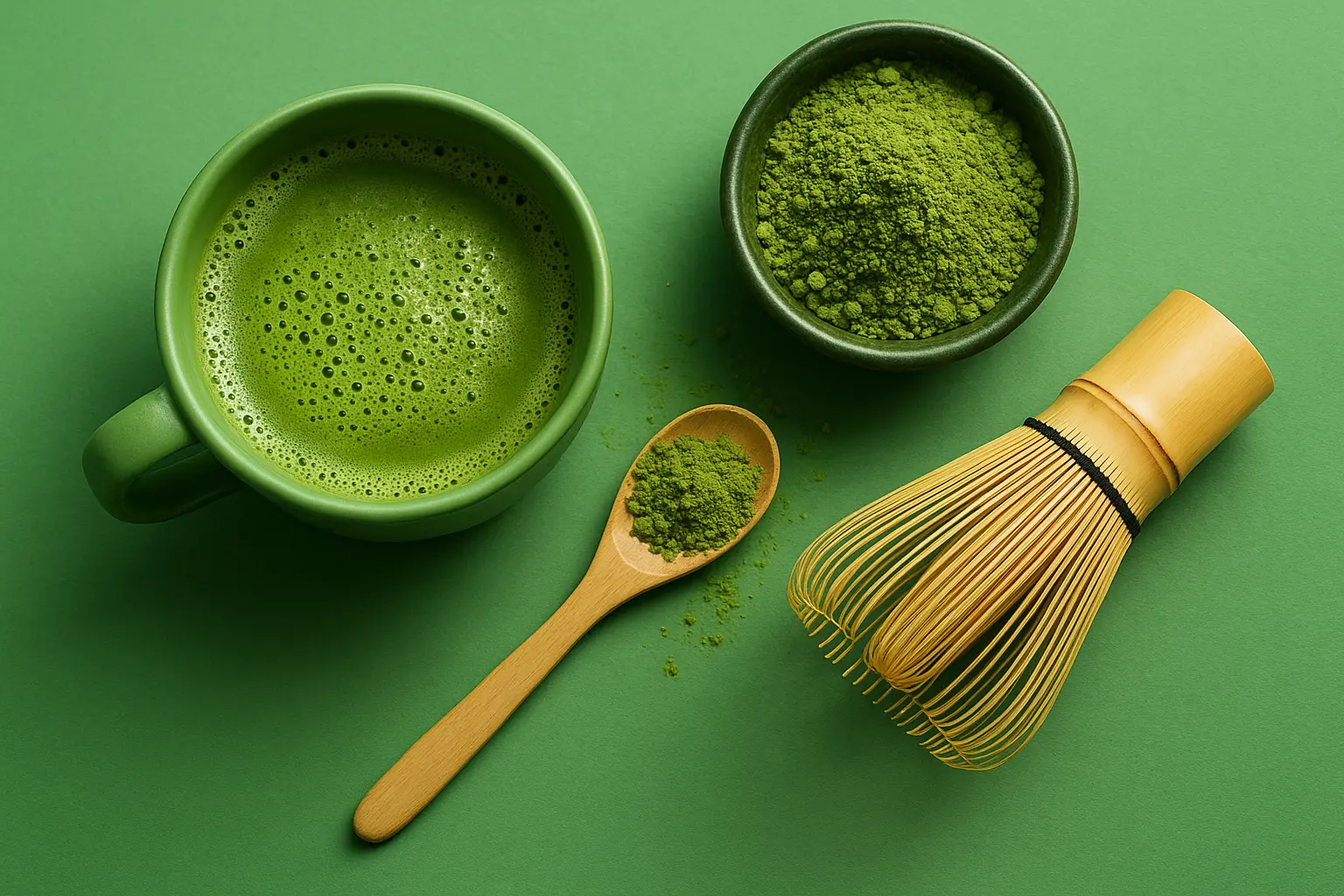What is Matcha?

Matcha is a finely ground powder made from specially grown and processed green tea leaves (Camellia sinensis). Unlike regular green tea where leaves are steeped and discarded, with matcha you consume the entire leaf, which means you get all the nutrients and caffeine the leaf contains [1]. The unique cultivation process, where tea plants are shaded for 20-30 days before harvest, increases chlorophyll and amino acid content, particularly L-theanine [2].
Caffeine Content in Matcha
Scientific analysis shows that matcha contains significant amounts of caffeine, with content varying based on several factors [3]:
- Standard serving (1 teaspoon/2g): 35-70mg of caffeine [4]
- Traditional preparation (2 teaspoons/4g): 70-140mg of caffeine [4]
- Ceremonial grade matcha: Typically higher in caffeine (up to 80mg per serving) [5]
- Culinary grade matcha: Usually lower in caffeine (around 35-50mg per serving) [5]
For comparison, an 8oz cup of coffee typically contains 95mg of caffeine, while a cup of regular green tea contains about 30-50mg [6].
How Matcha's Caffeine Differs from Coffee
Research has shown that matcha's caffeine effects are unique due to its combination with L-theanine and other compounds [7]:
- Sustained Energy: The caffeine release is slower and more sustained (4-6 hours) compared to coffee's quick spike and crash [8]
- Calm Alertness: L-theanine promotes alpha brain waves, creating a state of relaxed alertness [9]
- No Jitters: Less likely to cause anxiety or jitters compared to coffee [10]
- Better Focus: The combination of caffeine and L-theanine improves focus and concentration [11]
Factors Affecting Matcha's Caffeine Content
Scientific studies have identified several factors that influence matcha's caffeine content [12]:
- Grade of Matcha: Ceremonial grade typically has more caffeine than culinary grade [13]
- Amount Used: More powder = more caffeine [14]
- Water Temperature: Hotter water extracts more caffeine [15]
- Growing Conditions: Shade-grown leaves tend to have higher caffeine content [16]
- Harvest Time: First harvest (spring) leaves contain more caffeine [17]
Health Benefits of Matcha
Clinical studies have demonstrated numerous health benefits of matcha [18]:
- Rich in antioxidants (especially EGCG) - up to 137 times more than regular green tea [19]
- Supports metabolism and weight management [20]
- May improve brain function and memory [21]
- Contains vitamins A, C, E, and K [22]
- Provides minerals like potassium, calcium, and iron [23]
- May help protect against certain cancers [24]
When to Drink Matcha
Research suggests optimal timing for matcha consumption [25]:
- Best consumed in the morning or early afternoon [26]
- Avoid drinking 4-6 hours before bedtime [27]
- Ideal before workouts or study sessions [28]
- Can be a good coffee alternative for those sensitive to caffeine [29]
Safety Considerations
Clinical guidelines for matcha consumption [30]:
- Pregnant women should limit intake to 1-2 cups per day [31]
- People with caffeine sensitivity should start with small amounts [32]
- May interact with certain medications [33]
- High-quality matcha is recommended to avoid contaminants [34]
- Stay hydrated when consuming matcha [35]
Calculate Your Caffeine Intake
Use our caffeine calculator to understand how matcha affects your daily caffeine levels and when it's best to consume it.
Try the Calculator